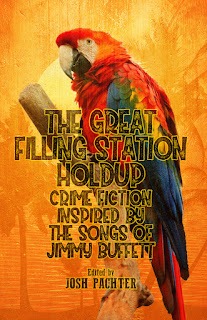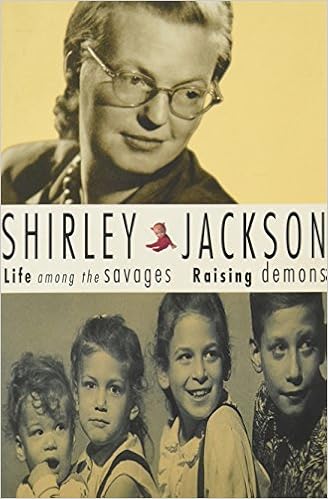 |
Deep Work: Professional activities performed in a state of distraction-free concentration that push your cognitive capabilities to their limit. These efforts create new value, improve your skill, and are hard to replicate.The challenge facing any professional today, he says, is fighting to accomplish this deep work. It’s bad enough that we all have to contend with mindless admin or household tasks, but now we’re bombarded with ceaseless emails, the promise of “free promotion” if only we’ll become slaves to social media, and the fatuous lie that is multitasking.
In contrast, Newport, an associate professor of computer science at Georgetown University, famously responds only to emails he thinks are worth it. (We know this from personal experience. Denise and I have tried to lure him into doing an interview. No response.)
He did, however, talk to a reporter for the New York Times. It’s a wonderful chat, archived here. In trying to explain why ceaseless interruptions by social media and email are making us miserable, he says,
“…the culprit here is network switching. Human brains take a long time to switch. If you’re going to put your target of attention on one thing and then switch it to a new target, that takes a while, right?”And later he adds:
“And then if you wrench your attention back to what you were trying to do, it creates this whole pile-up in your brain, which we experience as a loss of cognitive function. We also feel frustrated. We feel tired. We feel anxious. Because the human brain can’t do it.”I greatly enjoy Deep Work’s opening anecdote. Newport describes how Carl Jung got some of his major books and academic papers written. Jung built a Spartan, two-story stone tower in Bollingen, in the woods overlooking Lake Zurich, and used it to escape from the obligations of clinical practice, academic lectures, and the temptations of Zurich’s coffeehouse scene. (He later enlarged the house, but you can see the original design here.) He conceived that tower not as a vacation home, but a place to which he escaped to get work done. Alone, away from others, Jung walked in the woods, thought deeply, and managed to get a lot of writing done. The ideas born at Bollingen are today regarded as the strongest counter-arguments to Freudianism.
If you want to write, you need to think. Sometimes deeply. Even if what you’re writing is playful. I have heard of some people who can write while playing classical music, or jazz, or whatever, in the background. I’ve heard of a mystery writer—was it Stanley Ellin or Robert L. Fish?—who could bang away happily on his typewriter while his kids were inches away, playing in their pool. I believe all these stories, but I can’t say I necessarily admire such skills.
Some of the best advice on writing is sitting on the windowsill facing Denise’s desk. She describes them as a “A list of do’s, a list of don’ts.”
The other little list Denise treasures is culled from the work of Henry Miller. It’s a work schedule Miller hammered out in the 1930s to help him get one particular book done. I’ve made the image big so you can read his rules, but you can find the complete list at numerous websites, like this one.
And yes, Miller’s rules may not apply to the one big project you’re working on, nor are they for every writer. This is, after all, Miller’s list. But still, when I read his rules, I feel seen: Work on one thing at a time until finished. Start no more new books. Work joyously. Go out and see friends. (Boy, so I miss that in the long malaise that is 2020-21.) But also: when you cannot create you can still work. Yes, yes, yes! Man, is he right about all of that.
I don’t know if Professor Newport has ever seen this list, but I think he would approve. At the end of Newport’s interview with the Times, he’s asked for book recommendations, and he tosses off a few, observing that by necessity literary work is the epitome of deep work:
“there’s really no way to produce real insight in writing at that level without actually just having the ability to be alone with your own thoughts and observing the world, and just letting that percolate and letting that move, and trying to craft and move and work with it.”I like that. Also, for some reason, writing this post reminded me of our man Curly, played by Jack Palance, in the 1991 movie, City Slickers. Remember his genius piece of advice?
I recently watched another sort of clip; an interview with one of John Steinbeck’s sons. Thomas Steinbeck said his father would take time every morning to sharpen 24 pencils because he hated the distraction of having to stop his work and sharpen them in the middle of whatever he was working on. I suspect that anyone who’s ever written knows the real reason Steinbeck sharpened those pencils. He was procrastinating, because sometimes writing is terrifying, especially if you have struggled with depression and self-doubt, as Steinbeck did.
Nevertheless, I went out that day and ordered a box of 24 pencils. They’re (relatively) local-to-me pencils, made by the good folks at the Musgrave Pencil Company, in Shelbyville, Tennessee. They’re made of cedar, come in a fragrant cedar box, and smell marvelous when you take the time to sharpen them.
So I guess my advice this week is to take the advice of other writers and thinkers. Stay safe. Work joyously and recklessly. Work on one thing that freaking matters to you right now. Heaven help you if you start a novel or story with the weather! And take the time to smell the pencils.
____________________See you in three weeks!— Joe






























